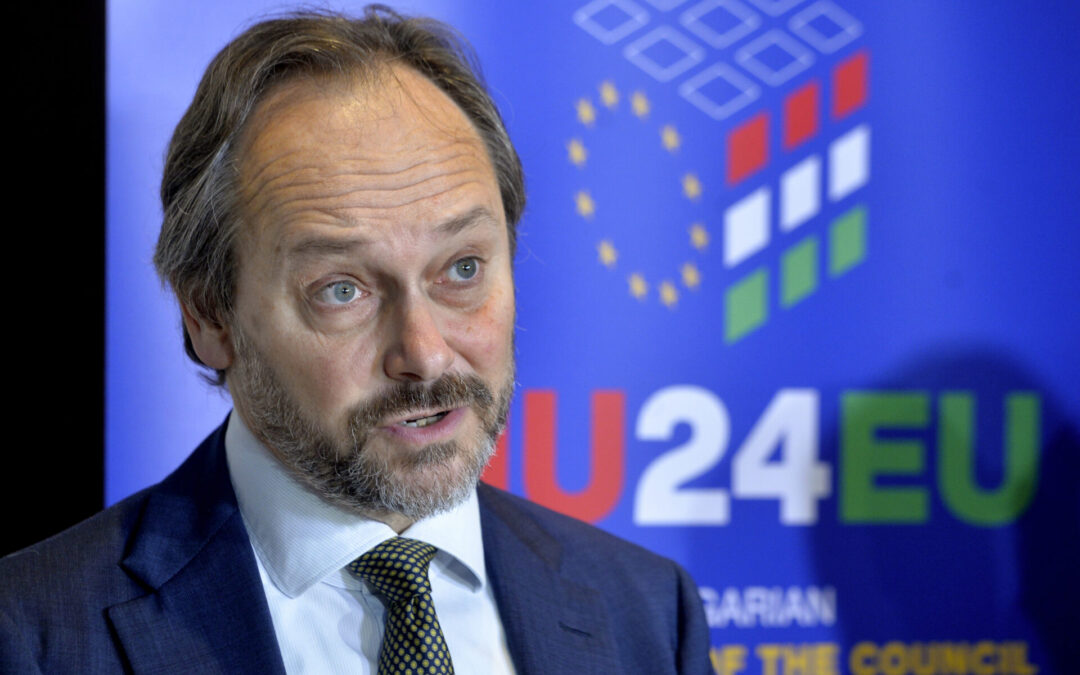BELGRADE – The Head of the Delegation of the European Union to Serbia, Emanuele Giaufret, said that the EU enlargement policy will remain one of the key issues during the six-month Hungarian presidency of the Council of the European Union, which began on July 1. “The growth plan will also remain in focus. We continue to work on all fronts. Yesterday, 1.2 billion euros of aid was approved for the Western Balkans, including the construction of the Belgrade-Niš railway,” Giaufret said to reporters ahead of the event entitled “From Belgium to Hungary: New Opportunities for Further Acceleration of the Enlargement Process,” organized in Belgrade, which discussed the achievements of the Belgian presidency of the EU Council, as well as expectations of the Hungarian presidency, with a special focus on enlargement policy.
He added that the European Council also adopted a roadmap for reforms, emphasizing that internal reforms must go hand in hand with enlargement to make the European Union stronger on the global scene. “The European Council has really highlighted the new dynamism that exists in enlargement policy. It really is the responsibility of both the European Union and the candidate countries to seize this opportunity and take the necessary steps to advance enlargement,” said the head of the EU Delegation. He thanked Belgium for, as he assessed, excellent management of the EU Council and the achieved results, and noted he looks forward to the Hungarian presidency, with the conviction that they will work together to promote enlargement in the Western Balkans, especially in Serbia.
The Hungarian Ambassador to Serbia, József Zoltán Magyar, said that during the presidency, one of Hungary’s biggest priorities will be strengthening the EU, especially in the field of economy. “Certainly, one of our biggest priorities will be enlargement. I am grateful to the Belgian presidency as they have really done a lot to gain good momentum for continuing the enlargement process,” said Magyar. He emphasized that Hungary considers Serbia’s efforts towards the EU as positive and adds that from Hungary’s perspective, conditions have been met for opening a new cluster or some new chapters in the upcoming period. The Ambassador of the Kingdom of Belgium to Serbia, Kati Bugenhout, emphasized that on June 30, Belgium’s 13th presidency of the EU Council ended, and that during the presidency, Belgium did everything it promised – provided greater protection, strengthened and prepared the EU. She added that during Belgium’s presidency, the focus was on the Growth Plan for the Western Balkans as well as the EU enlargement policy, and expects this to remain the focus during the Hungarian presidency as well.
The Minister for European Integration in the Government of Serbia, Tanja Miščević, said that the ministry is currently working the most to maintain the pace that would prove Serbia is fully ready to open Cluster 3. The President of the Governing Board of the Center for European Policy (CEP), Srđan Majstorović, said the main goal is to inform the citizens of Serbia about the current EU priorities and to provide a clear perspective on how the Government of Serbia is preparing to respond to the challenges facing the EU. (July 3)
 go to the original language article
go to the original language article
